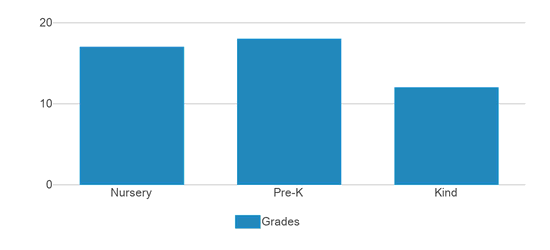At Garden Montessori School, a child learns the joy of learning, an education that lasts a lifetime.
Based on the Montessori philosophy, Garden Montessori School is designed to give each child a structured environment where he can develop at his own pace.
By working with his world, a child has real-life experiences that lead to abstract understanding.
Creative materials like sandpaper letters and moveable numbers make fundamentals clear and graspable. Practical life projects help him understand himself and others, learn self-control and consideration.
Adventures with art, music, history, science, and geography offer the excitement of exploration and discovery.
The goal of the Garden Montessori School and the Montessori philosophy is to build a foundation for a lifetime of creative learning in the child; to develop the characteristics of responsibility, initiative, independence, and self-confidence.
The child learns persistence, a sense of order, the ability to concentrate, and develops an increased curiosity.
In total, a positive attitude toward exploration, discovery, and learning. Children are led to become acquainted with themselves, to learn what they can do and to take pride in their achievements.
School Overview
School Type
Religious Affiliation
Grades Offered
Grades Prekindergarten-Kindergarten
Year Founded
1973
Student Body
Total Students
34 students
Student Body Type
Co-ed
Students by Grade

Academics and Faculty
Total Classroom Teachers
4 teachers
Student : Teacher Ratio
9:1
National avg.: 13:1
% Faculty w/Advanced Degree
75%
Average Class Size
24 students
Classroom Dress Code
Casual
Tuition and Acceptance Rate
Admission Deadline
None / Rolling
Yearly Tuition Cost
Tuition Notes
We offer Montessori and full day child care programs. Tuition varies according to which program you sign up for.
Acceptance Rate
100%
National avg.: 85%
Admissions Director
Jackie Wofford
Admissions Associate
Leslie Massey
School Notes
- 2 1/2- 6 years of age
- preschool thru Kdg
- Montessori classroom
- before and after childcare
- Kdg program
- field trips,
- music, sign language, spanish, exercise and dance classes
- large playground
- 25% students of color
- 4 teachers with Bachelor and/or Masters degrees in Montessori education
- 100% of teachers have degrees
Source: Verified school update
Frequently Asked Questions
How much does Garden Montessori School cost?
Garden Montessori School's tuition is approximately $610 for private students.
What is the acceptance rate of Garden Montessori School?
The acceptance rate of Garden Montessori School is 100%, which is higher than the national average of 88%.
When is the application deadline for Garden Montessori School?
The application deadline for Garden Montessori School is rolling (applications are reviewed as they are received year-round).
Recent Articles

A Parent's Guide To Understanding High School Teaching Methods
This comprehensive guide helps parents navigate the various teaching methods used in today's high school classrooms. By understanding these approaches, you'll be better equipped to support your teen's learning journey, communicate effectively with teachers, and create a complementary learning environment at home.

February 08, 2025
Social Emotional Learning: Education's Hidden SymphonyA musician's perspective on Social Emotional Learning reveals how this educational framework orchestrates success through five essential emotional competencies.

January 24, 2025
A Roadmap For Starting A Private SchoolUse this roadmap as a set of talking points with your trusted mentors and professionals to start the private school of your dreams. You're not alone. Over the years, hundreds of folks like you have had the same dream. From Quintilian to Maria Montessori to Lucy Madeira Wing, visionary educators have established schools to teach according to their beliefs and methodologies.


















